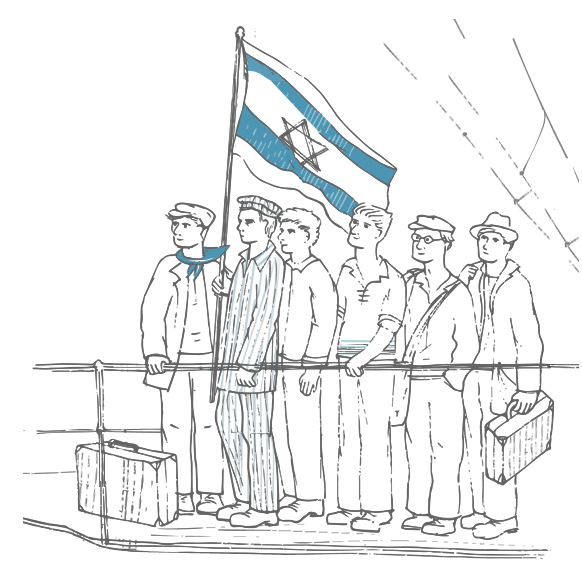Holocaust Survivors and the State of Israel

“My father’s precept, to be a good person, has been the essence of my life”

“My father’s precept, to be a good person, has been the essence of my life”
Professor Kalman Perk is a veterinarian and founder of the Department of Anatomy and Physiology and the Koret School of Veterinary Medicine at the Hebrew University of Jerusalem.
Kalman Perk was born in 1930 in Kovno, Lithuania to an affluent Zionist family. He and his sister attended the Hebrew Gymnasium, and their home was filled with talk about immigration to Palestine.
In 1940, the Soviets entered Kovno, confiscating all “Capitalist” property and arresting the bourgeoisie. Kalman’s father was not arrested because at the time he was ill and was therefore hospitalized.
In June-July 1941, following the Soviet retreat, the Lithuanians killed approximately 10,000 Jews. The Germans entered Kovno and in August 1941 the city’s 30,000 Jews were sent to a ghetto in the Slobodka neighborhood.
In 1944, Kalman’s sister left to join the partisans; she was never heard from again. In July 1944 - with rumors of the ghetto’s impending liquidation - the Perks hid in the cellar. They were soon forced to abandon their hiding place due to German-ignited fires that spread from house to house.
Deported to the camps with his family, Kalman’s mother pleaded for her son to escape from the train: “He looks like a gentile, he is mischievous - he will stay alive.” His father scooped him up and before throwing him out told him: “Kalman, du zolst zein a mentsch” (Kalman, be a good person). The message - to survive, to be someone, and to tell his story - has remained with Kalman to this day.
Kalman continued eastward to the Russian front under an adopted Lithuanian identity and managed to survive the war. Kalman eventually returned to Kovno, determined to immigrate to Palestine. He traveled through Vilna, Bialystok, Warsaw, Lublin, and Venice, all the time maintaining contact with an uncle living in Jerusalem. His uncle managed to obtain an immigration certificate for Kalman and Kalman arrived in Palestine in 1945.
Following service in the Lehi and the IDF, Kalman studied to be a veterinarian in Switzerland. Back in Israel, he founded the Department of Anatomy and Physiology and the Koret School of Veterinary Medicine at the Hebrew University of Jerusalem. He is Honorary Director of the School of Veterinary Medicine at Hebrew University and a member of the Council for Nutrition of the Agricultural and Rural Development Ministry. Today he researches viruses and cancer. Kalman is married with two sons and six grandchildren.